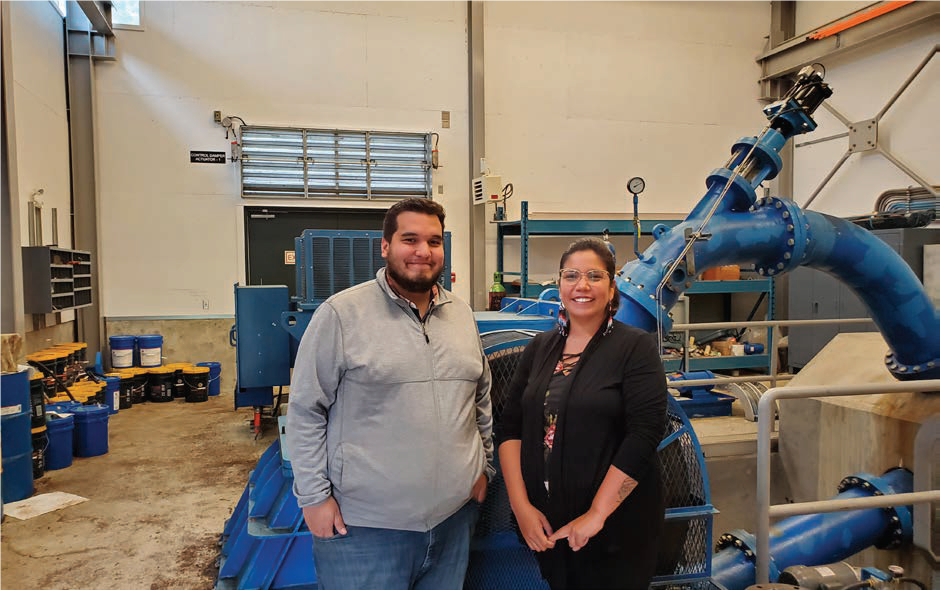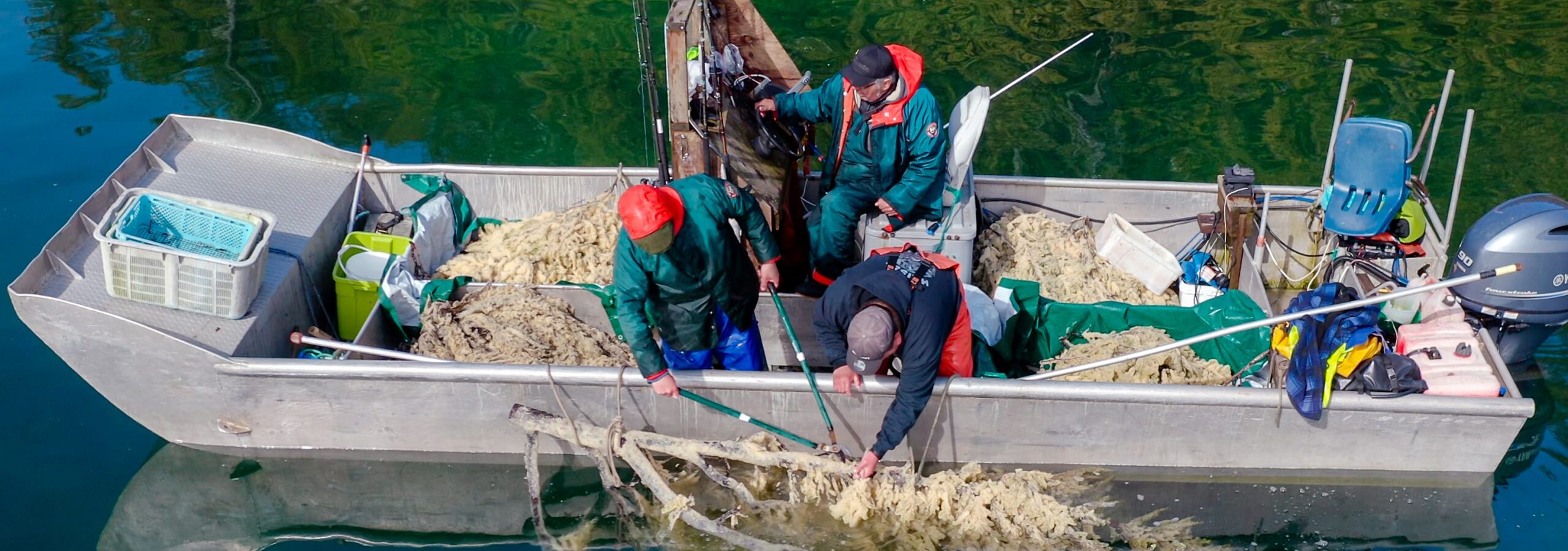A new 1.7-megawatt upgrade to the Kitasoo/Xai’xais hydropower facility, starting this summer, will increase power security for the Nation and support the creation of new homes and much-needed infrastructure, such as a wastewater treatment plant, a larger water treatment facility and a new community hall.
“It’s like a breath of fresh air for us to have a project that will have so many positive impacts for our community while
a pandemic is happening,” says Chief Councillor Roxanne Robinson. “It’s been very hard to move forward when we’re at full capacity with our hydro.” The new upgrade will support the buildings Klemtu has dreamt of, she says, providing gathering places such as a new community hall. “Our people have always been social people and with older buildings torn down, we didn’t have a place to be social anymore. Now we have hope that we can build these spaces and have celebrations and a place to gather and be united again.”
A $4.6 million contribution from BC’s Renewable Energy for Remote Communities program is funding the upgrade that will reduce carbon emissions by an estimated 11,160 tonnes over the facility’s operating life.
The Kitasoo hydroelectric facility – 100 per cent owned by the Nation – has supplied clean power to Klemtu for 40 years, helping it transition from a dependency on dirty diesel fuel. The planned upgrade is the latest step in the Kitasoo/Xai’xais efforts over the past four decades to build energy sovereignty and support community growth.
“We have roughly 320 members in Klemtu and about 200 others spread across Prince Rupert and the Vancouver
region,” says Barry Edgar, Band Councillor and Climate Action Coordinator for the Kitasoo/Xai’xais. “The hydro expansion will provide us with the chance to add new homes and more buildings to house all the new community programs coming in every year.”
Klemtu’s hydroelectric facility is a gravity-fed system that funnels water from nearby Baron Lake down the mountain
where it gathers speed as it falls, eventually entering and spinning a turbine to generate power. It’s a low maintenance system that pays for itself in the long run and allows the Nation to keep rates manageable. “It’s so beautiful living on this part of the coast but it’s costly,” Edgar explains. “We want to keep the cost of living at a reasonable rate so people can afford it.”
Greater energy sovereignty will also make it possible for families to move back to Klemtu and help build community
resiliency, Edgar says. “We’ve come a long way with our cultural revitalization project in the past five years. It would
mean a lot to see these children and even adults reconnect with their culture.”
He believes the return of members to the community would “mean a lot for our culture surviving the next 25 years.” At 27 years old, Edgar says he’s had his fill of city life. “Living in the city, you lose track of those stories you hear from your grandmother when you go to visit her. You lose track of your language.”
“Our elders are starting to pass away and when they go, the stories go with them,” Edgar explains. He points to a large database of cultural stories and videos the Nation has built to help preserve its culture. “People moving home from the city can immerse themselves in that all over again for the first time – or the first in a long time.”


